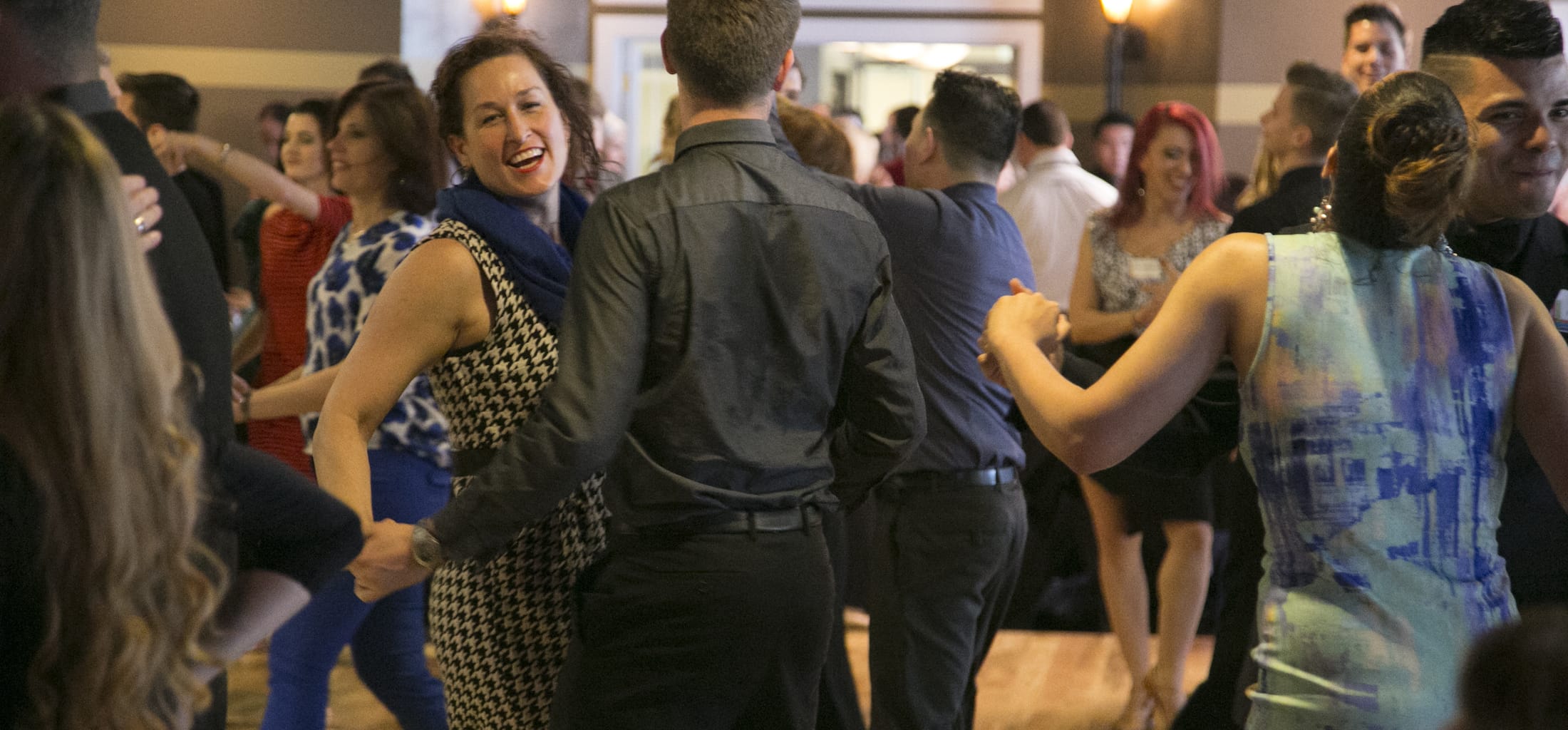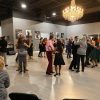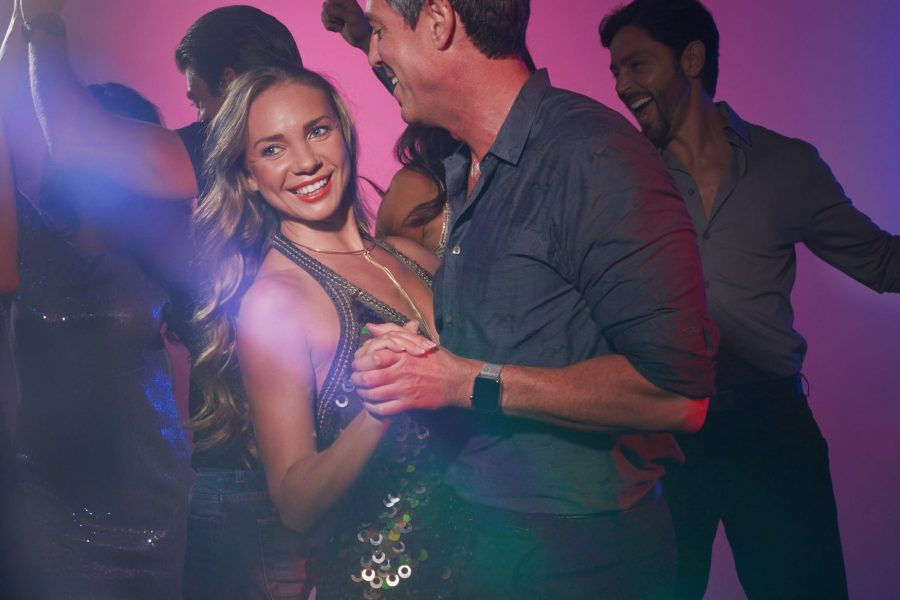Why is Ballroom Dancing SO Good For You?
The scientific evidence keeps mounting—ballroom dancing is great for the mind and body. And it doesn’t really matter what kind of dancing you do, as long as you are moving your body. At Arthur Murray Dance Studios, we have witnessed the changes that our students have enjoyed after making dance a regular part of their lives. But let’s look at the science behind dance’s many benefits first:
Dancing Benefits Your Brain and Cognitive Skills
When the prestigious Harvard Medical School’s Mahoney Neuroscience Institute Letter tells us that ballroom dancing does something positive for the brain, we’re all ears! The article, “Dancing and the Brain” references a study using PET imaging to shows how many regions in the brain are activated during dance learning and performance. In 2003, a study published in the New England Journal of Medicine from researchers at the Albert Einstein College of Medicine looked at 11 different kinds of physical activity but found that only one—dance—lowered participant’s risk of dementia.
Dance, reports The New York Times in the article “Is Dancing the Kale of Exercise,” provides multiple cognitive and physical health benefits. Here’s more proof:
Frontiers in Human Neuroscience – A 2017 German report analyzed brain scans from people who were an average of 68 years old and did either interval training or social dancing. Guess who had improved balance? The social dancers.
Ballroom Dancing Provides a Complete Body Workout
Ballroom dance lessons offers a complete workout for your body and mind, with the added attraction of meeting new people who also want to learn how to dance. It’s a complete package for well-being. Just as we know that laughter and socializing are important parts of a well-rounded life, learning to dance benefits the mind and the body.
Another frequently referenced study comes from Patricia McKinley of McGill University, where seniors participated in a tango program. The study, published in the 2008 Journal of Aging and Physical Activity, reported that long-term tango was associated with better balance and gait in older adults. Want to do something to prevent a fall? Get on the dance floor.
How Does Dance Make You Feel?
Everyone smiles on the dance floor. We see it every day. A familiar song, the anticipation of moving across the dance floor in your partner’s arms, and the enjoyment of mastering a new dance puts a smile on every dancer’s face. And we feel better physically after we dance, as the body is put through an aerobic workout that’s fun. But that’s just the start of the benefits of your ballroom dance journey.
Burning Up The Dance Floor Burns Up Calories Too!
Burning fat and having fun usually don’t go in the same sentence, but in a dance studio, they do! Just look at the dancers on competitive dance shows and their non-dance partners. By the end of the season, the new dancers have lost weight and become more toned. That’s because ballroom dance is a low-impact aerobic activity that burns through a lot of calories. You can go running or bicycling, but we think you’ll have more fun in the dance studio.
Another benefit to ballroom dance and weight loss: commitment. How many times have you joined a gym in January, only to stop going in February? But when people make a decision to have fun and get fit in a ballroom dance studio, they stick with the program—because they are having a great time.
Here’s what a regular schedule of ballroom dance can do for you:
- Aerobic activity is great for heart and lung health
- Increased use of muscles creates strength and enhances flexibility
- Coordination and balance skills improve
- Brain training through learning repetitive patterns that requires concentration and awareness
- Socialization with people with a shared interest
Dance Is A Weight-Bearing Activity Which Builds Bone Strength As Well As Muscle Strength
The Department of Health and Human Services recommends that adults get at least 150 minutes of moderate aerobic activity or 75 minutes of vigorous aerobic activity a week, or a combination of the two. The guidelines suggested spreading this out through the course of a week. The Mayo Clinic says a good goal is about 30 minutes a day of moderate physical activity.
Don’t be surprised if you start a dance program and have some new aches – chances are good you’re using muscles you haven’t used before. There’s a lot of moving that we don’t do in our day-to-day lives, especially moving backwards, which we aren’t used to. These aren’t treadmill steps, which tend to be repetitive and less flowing. We also know that walking on a treadmill can be tough on the knees. But ballroom dancing involves long, flowing movements that stretch muscles throughout the body.
We Say That If You’re Having Fun, You’ll Be Sure To Be More Active.
You know how at the start of every year, you promise yourself to be more active? You may even join a local gym. The year begins with the best of intentions, and then by March, your sneakers are gathering dust. Those new workout clothes you bought haven’t moved out of the closet since February.
We know exactly what you’re up against. Going to the gym, where you’ll be walking in a long row of treadmills, or working up a sweat on the elliptical while surrounded by television screens, bright fluorescent lights and people who are all wearing ear buds, isn’t really what we want to do.
Here’s A Different Picture, At An Arthur Murray Dance Studio
No one’s wearing ear buds. People who come to the dance studio are looking for a fun, fitness and social experience. They aren’t staring at a screen either. Cell phones are tucked away in handbags or coat pockets. This is their “me” time, when they’re focused on their instructor, the other dancers, the music and the feeling of gliding across the dance floor as they learn a traditional waltz, or getting their rhythm on when mastering the Latin dances. It’s a friendly, welcoming environment and everyone’s come for the same reason: learning to dance, having fun and making new friends.
At Arthur Murray Dance Studios, it’s more than a lesson –it’s a lifestyle!







